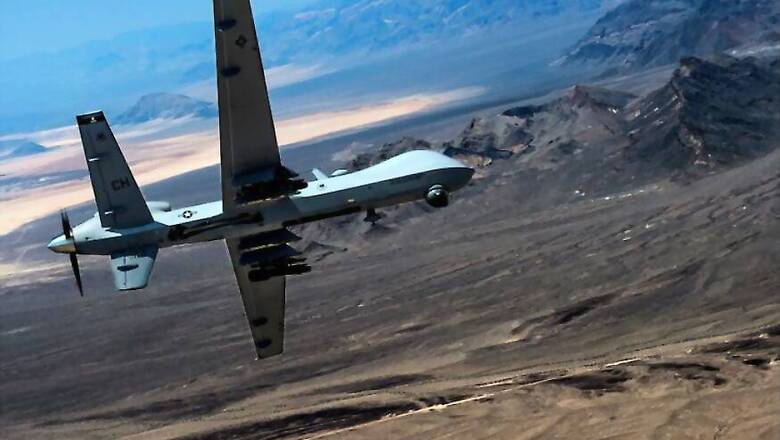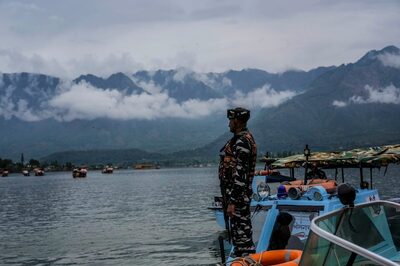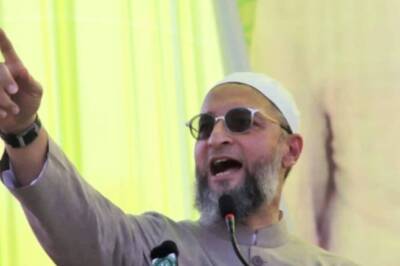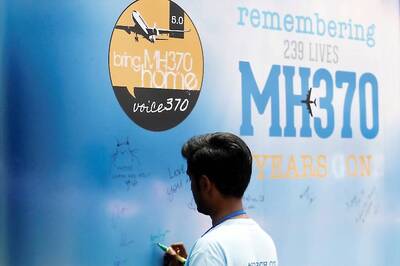
views
Dera Ismail Khan: The leader of a Pakistani militant group whose suicide bombings killed more than 250 people died on Thursday of injuries from a US drone strike in Afghanistan, a spokesman for the militants said.
Omar Khalid Khorasani's death comes ahead of US Secretary of State Rex Tillerson's visit and is likely to help ease tensions between the often-wary allies, as Islamabad has been asking Washington to target militants who attack inside Pakistan and hide over the border in Afghanistan.
Khorasani's Jamaat-ul-Ahrar (JuA), a splinter faction of the Pakistani Taliban, is one of dozens of armed Islamist factions — including al Qaeda and the Afghan Taliban — operating in Afghanistan and Pakistan.
But JuA has been particularly deadly in Pakistan, claiming responsibility for eight major attacks in two years.
Among them was last year's Easter Sunday bombing in a park that killed at least 70 people, including 29 children, in the eastern city of Lahore.
The group also said it carried out a suicide attack at a hospital that killed at least 74 people in the southwestern city of Quetta, a bombing also claimed by Islamic State, with which JuA also has been affiliated.
Rumours had flown for two days that Khorasani had been wounded in US drone strikes along the Afghan-Pakistani border, and on Thursday his group confirmed he had died.
"Our leader, Omar Khalid Khorasani, was wounded in one of the recent drone strikes in Afghanistan. He was wounded badly, and today he was martyred," JuA spokesman Asad Mansur said by telephone.
The announcement came a week after Pakistan's army rescued a kidnapped American couple and their three children from the Haqqani network, an Afghan Taliban faction that Washington has long accused Islamabad of failing to target.
The killing of Khorasani is likely to add to the recently improved mood between Washington and Islamabad, said Talat Masood, a retired Pakistani general and prominent political analyst.
"He was a very powerful leader and he had done great harm to Pakistan," Masood said of Khorasani. "I think Pakistan has been looking forward to this, and I think the Americans targeting him has been very helpful in that sense."
Khorasani had a background that reads like a history of Pakistani militancy.
Born Abdul Wali in a village called Lakaro in the northwestern Mohmand tribal region, Khorasani started out as an anti-India jihadist, according to a long-time friend who spoke last year to Reuters on condition of anonymity.
He later joined the Pakistani Taliban in 2007 to fight the government to establish strict sharia Islamic law.
In 2014, Khorasani left the Pakistani Taliban after a leadership quarrel to form Jamaat-ul-Ahrar.
JuA gained attention in September 2014 when it announced it was supporting Islamic State and rejecting the main Pakistani Taliban leadership.
By March 2015, however, the group was again swearing loyalty to the main Pakistani Taliban umbrella leadership.
Still, JuA never specifically disavowed Islamic State either, and several attacks inside Pakistan have been claimed by both groups.
The United States last year designated JuA as a terrorist group.
Khorasani had previously been seriously wounded in a NATO air strike in eastern Afghanistan in 2015 but later recovered.



















Comments
0 comment